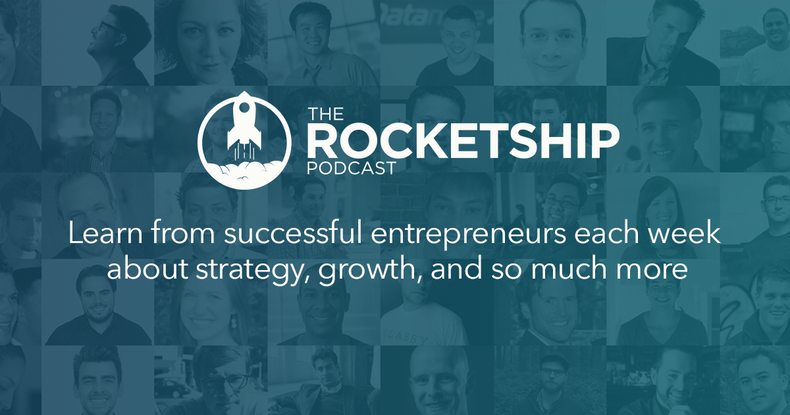Founder Lesson
I'm talking weekly with a very good founder who's working on a startup to disrupt hiring. He checks all the boxes. He loves the problem...check. He's a visionary...check. He's smart with a strong work ethic...check. He has very relevant experience...check. He has a proven track record of building products...check. He's making many personal sacrifices to make sure his vision becomes a successful product...check. He knows the space well...check. And he's talking with lots of potential customers...check.
The one thing that I keep thinking about when we talk is time.
I don't have any real numbers on this, but I suspect the odds greatly increase when a founder checks all these boxes. Maybe the 1% chance of success goes to 10%. What I don't think you know by reading the laundry list of characteristics above is how this founder will manage time.
I've written a bunch about the psychological states of founders (examples here and here) because it's so fascinating and this podcast caused me to think a bit more about the psychology of time.
Some thoughts on the nature of time as it relates to startups...
1) Delusion. Inevitably all good founder lessons begin with the topic of delusion because no one in their right mind would decide to pursue this type of venture with odds this poor. I don't know what the odds of creating a lifestyle business are, but the odds of getting venture (professional) capital for your startup idea are worst than the odds of a high school football player making it to the NFL. Like the founder says in this podcast, being naive is a necessary ingredient to start.
2) Money. The founder that I'm working with is launching a startup that doesn't have an immediate revenue model...some scale is necessary for his startup to start generating revenue. When I think about the concept of time with new startups my mind also typically goes to revenue model. If you can get a decent bit of revenue/margin out of the gate then you have the ability to pay for one or two people quickly if something takes off. This gives you more time if capital is difficult to raise (and it always is). There's no right or wrong answer about immediate revenue. You should pursue the business that you are most passionate about, but good initial revenue/margin does give you more time typically.
3) Creativity & Agility. What you can't tell by the laundry list of founder characteristics above is anything about this founder's creativity and propensity to alter their original product idea. If you believe that all startups pivot (which I do) and that any obvious, straight-forward approach to an idea has been tried (which I do), then a founder's job is to lean into surprises. This takes incredible creativity because customers will never tell you the next pivot to build and a founder won't even try to change if they hold on too tightly to their current version.
From my experience this is the missing piece for most founders. And, to be fair, the mental gymnastics of constantly questioning your product can be brutal at times. Too difficult for many people to handle.
4) Timing. As I learn more about startups, I think about timing more often. There are many examples of startups that were ahead of their time. As I write this, a very experienced founder of a previously high-profile failure is being asked to re-launch his startup because the timing is better. One strange advantage of having a long outlook is that you optimize for timing more.
5) 18 months versus 36 months. I frequently talk about it taking 18 months to get product-market fit, so why does it take up to 36 months to know what you have?
If I quit my day job tomorrow to work on one startup idea, I would assume (a) that it take me 6 months for to know anything deep about my space and customer habits, (b) after 6 months I would have some pretty good ideas to try and (c) then - if it's even possible to create a product for this problem - I might have something that people use after a year or two.
Everything up until this point is about product-market fit. Maybe you have PMF and it's a lifestyle business (that only pays for a few people) or maybe you have PMF and incredible word-of-mouth growth, so you have a high-growth startup. Either way, you have PMF, but you don't yet know how these metrics will play out over time. Will customers keep using at their existing cadence? Will other competitors enter the space, increasing your cost to acquire customers? Will you be able to tackle issues around scaling the team and the product?
There are so many unknown unknowns.
You won't know the underlying metrics of the business until you've been operating for 2-3 years (or more).
6) 3 years versus 7 years. Let's say timing works-out exactly as expected. Product-market fit in Year 2 and a good sense of the business in Year 3. The next phase is to scale the business and allow it to grow into its potential. Unless you are in a lifestyle business with no time pressure, you will likely be on a timeline of 7 years to realize the potential of the business (sometimes up to 10 years). If you take venture money then this is the timeline. But even if you don't take professional capital. most founders will expect their plans to play out in this way. My main point here is that a founder should expect to stick with an idea for 5-10 years if it works.
I often think of startup founders like wannabe actors getting on a bus to Hollywood to pursue their dream. A surprising amount naively think that they can get off a bus in Hollywood and be found within 15 minutes by just sitting in a Starbucks. These are the people who think ideas are everything btw. Others know it requires some work, but greatly underestimate the amount of work necessary to be "found." Others understand the (incredibly daunting) odds, but just know that they are the exception. While others know the odds, work as if they aren't the exception and do everything possible thing to increase their odds of success.
If you are a founder, be delusional about your vision for the product, but don't kid yourself about the odds...you need to create as many advantages as possible for yourself.
One advantage that you can create for yourself as a founder is to think about time correctly.
Sidenote: If you enjoyed this post, you might like this one as well.
Get Right to the Lesson
I’d recommend listening to the entire thing, but to get right to the point go to minute 2:24 of this podcast.

Thanks to these folks for helping us all learn faster
TK Kader (@Tawheed), founder & CEO of ToutApp (@toutapp)
Rocketship.fm (@RocketshipFM)
Michael Sacca (@michaelsacca)
Joelle Goldman (@JoelleGoldman)
Matt Goldman (@SDMattG)
Please let me and others know what you think about this topic
Email me privately at dave@switchyards.com or let's discuss publicly at @davempayne.
The best startup advice from experienced founders...one real-world lesson at a time.
